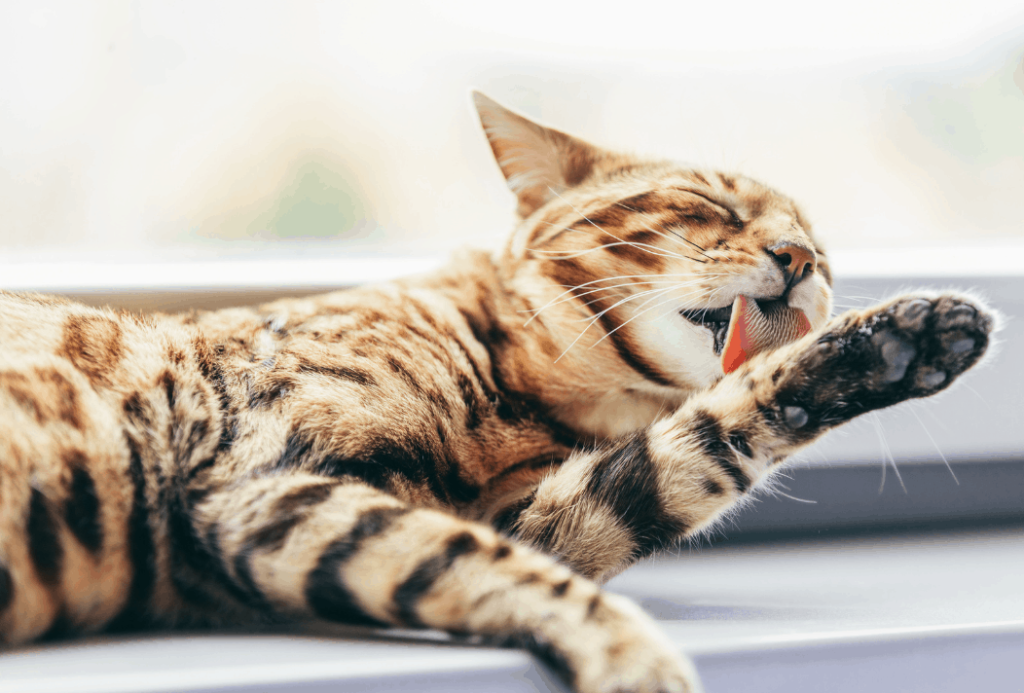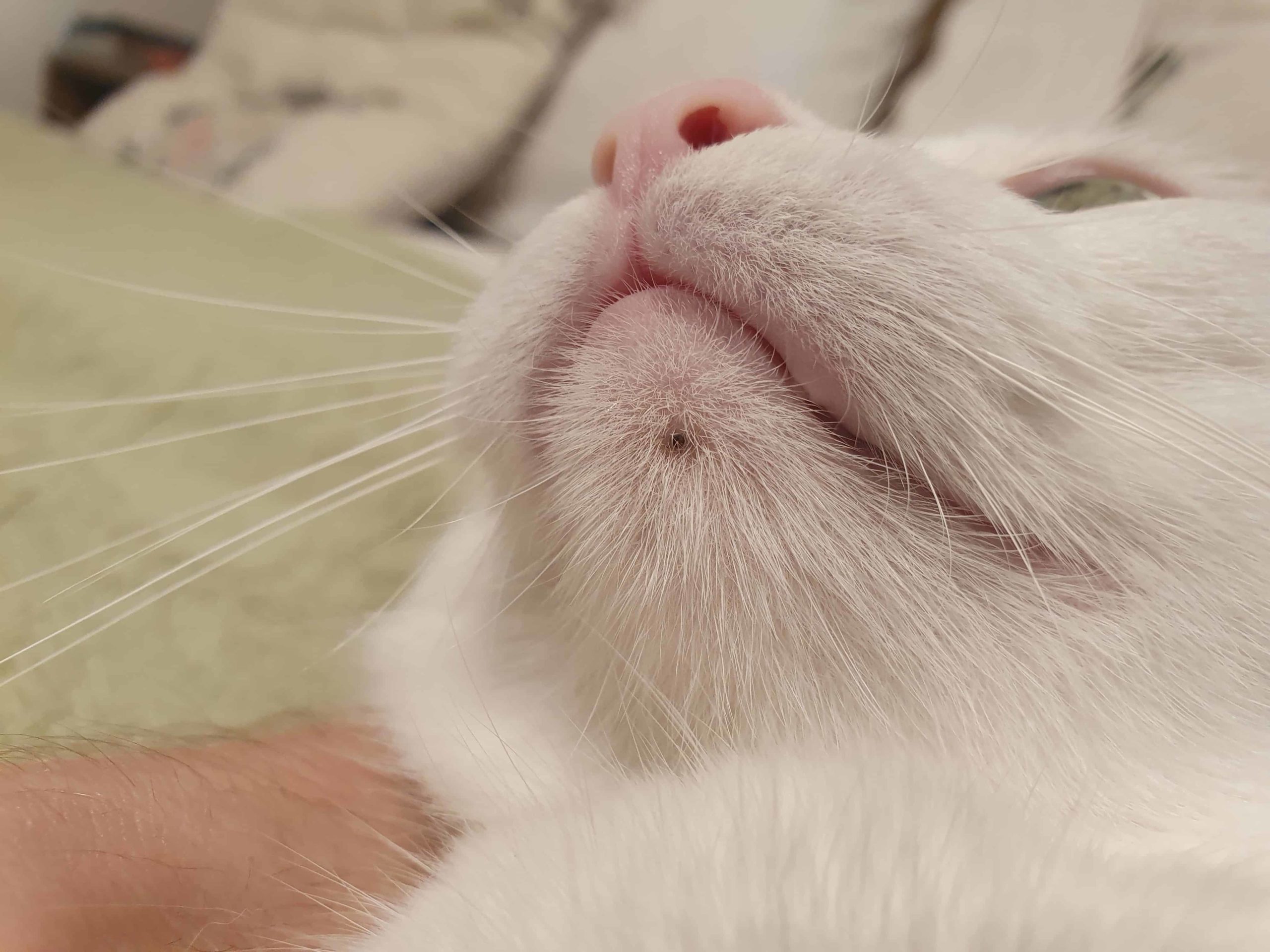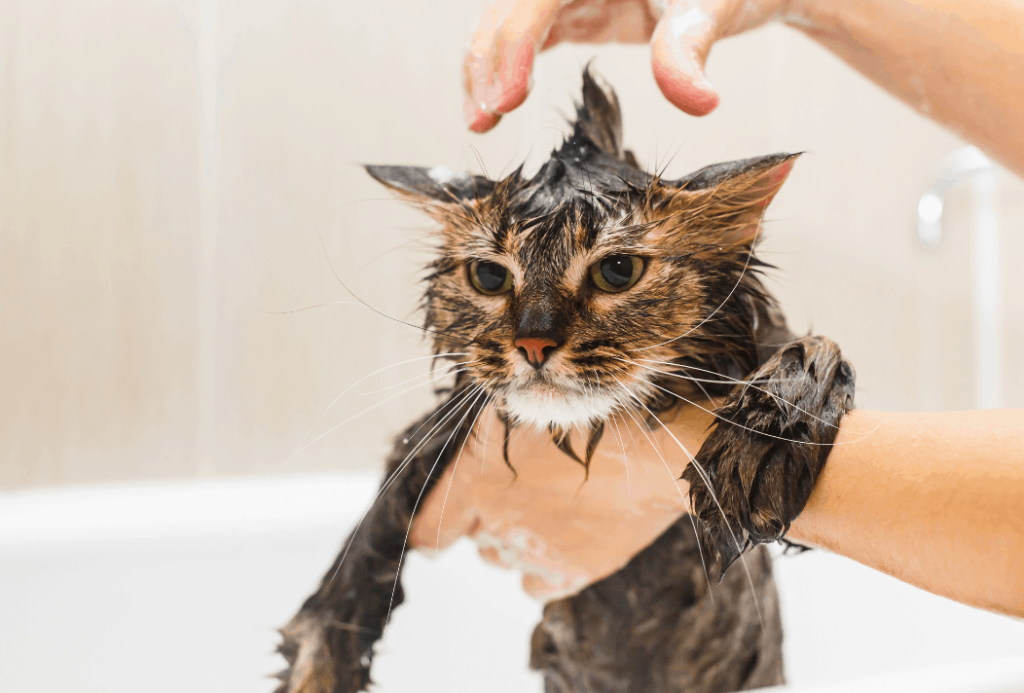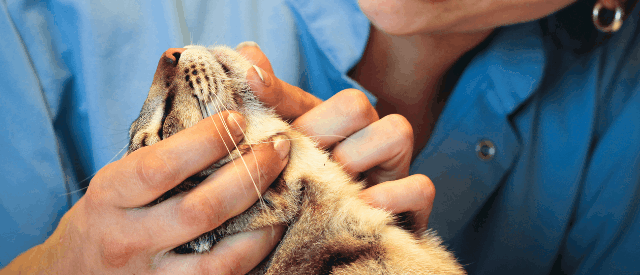Out of all the skin issues that cats can develop, chin acne in cats can have a very subtle appearance. If you have a cat who likes to lie on his back, it is easy to quickly glance at his chin and observe some tiny black spots.
Cats with longer hair may be more difficult to evaluate for chin acne, but if you touch your kitty’s chin, you may feel bumps or a rough texture. So onto the next obvious question, if you notice that your cat has chin acne, how concerned should you be? Does it hurt them? We’ll help you with the answer to those questions in this article, as well as outline some of the ways that you can treat your kitty’s acne at home.
What is chin acne in cats?
The chin acne that affects cats is similar to the kind of acne that humans develop. There is a protein called keratin that helps to keep skin rigid instead of wrinkled or sagging. Keratin also helps skin cells stick together so that a protective barrier is formed against infectious agents, allergens, and parasites.
In certain conditions, excess keratin production occurs and can plug up the openings to follicles in the skin. These keratinaceous plugs cause blackheads or comedones to form. If bacteria becomes trapped in the closed-up follicle, a whitehead or pustule forms. In cases where the follicle becomes very inflamed or painful, a boil or furuncle is formed. Furunculosis is the term applied when many furuncles form.
Causes of feline acne
The true cause of why hyperkeratinization occurs is unknown, but there are a few factors that can increase the likelihood of the formation of chin acne in cats.
Skin conditions
Pets with a skin condition called seborrhea are more likely to develop acne. Seborrhea is when excess skin oil called sebum is present. Just like in people, this can cause clogged follicles and acne. The chin is a common location for acne, but other areas like the belly and lower back can be affected.
A lack of grooming
Unlike dogs who need frequent bathing, cats are usually skilled at keeping themselves clean. They groom themselves every day, and the bristles on their tongue help to remove loose fur and dead cells from the skin’s surface. Older or sick cats who cannot groom themselves are likely to have a greasy, unkempt hair coat which increases the risk of developing acne. Long-haired cat breeds can develop knots or mats in their fur, so grooming appointments at a salon may be necessary to clip these mats away. If they remain on the cat’s skin, it can trap dirt and bacteria that can cause acne.

Plastic dishes
Chin acne can also be caused by eating and drinking out of plastic dishes. Plastic materials are prone to being scratched and worn down. Even with frequent cleaning, bacteria can hide in these scratched bowl bottoms, so when a cat goes to eat or drink, his chin will contact these areas.
What does chin acne look like in cats?
Small black spots
If your cat has chin acne, you might notice small black spots on his chin. These are the comedones or blackheads that come from having acne.

Redness
When there is infection, the chin can appear very red, or there may be large furuncles if the infection is very deep. These can be painful, and your kitty may be sensitive to the touch in this area.
Crusty or discoloured
Skin infection of the chin can also have a crusty or discolored appearance, and your cat may scratch this area often due to itchiness or pain.
Bleeding
Secondary infections can result from frequent scratching, and in some cases, bleeding may occur.
How do you diagnose acne?
Chin acne is usually diagnosed based on appearance, but in some situations, your veterinarian may recommend skin testing like cytology or scraping in order to rule out other underlying causes such as fungal infection and parasites.
Systemic diseases and allergies may also cause skin infection at the level of the chin, so blood work may also be recommended. If cancer or auto-immune disease is suspected, especially in patients where the chin acne is not responsive to initial therapy, skin biopsy testing will be recommended.
How do you treat feline chin acne?
Topical products such as shampoos
Mild cases of chin acne respond well to topical products. Products like wipes and medicated shampoos are effective when they contain ingredients such as benzoyl peroxide and sulfur. These are common ingredients in anti-seborrheic shampoos. Topical ointments containing benzoyl peroxide are helpful but their high concentration may be irritating for a cat’s skin.

Medicated scrubs and ointments
Medicated scrubs containing diluted chlorhexidine can help in cases where there is a secondary bacterial infection or deep infection and furunculosis. Topical mupirocin ointment is extremely effective with chin acne infections
Antibiotics
If severe enough, an infection may require the use of systemic antibiotic therapy. It is also helpful to keep fur clipped short in this area so that topical therapies can work better.
Improved diet
A high-quality diet is important to keeping your cat’s skin healthy. Omega-3 fatty acids like EPA and DHA are included in most diets, but supplementing extra omega-3s can benefit skin conditions because of their anti-inflammatory effect.
Disposal of plastic dishes
Also, consider getting rid of any plastic food and water dishes. Use bowls that are made of glass or stainless steel, and be sure to wash the bowls every day with warm, soapy water to decrease the presence of bacteria.
Chin acne is a common skin issue in cats.
In mild cases, topical therapy can resolve it, but moderate to severe cases may require the use of additional therapies such as systemic antibiotics. Routine grooming and keeping hair short can minimize the occurrence of chin acne in cats.
Supplementing omega-3s and avoiding plastic dishes can also help. And don’t forget, always get in contact with your veterinarian for advice and support when treating your cat for acne, especially if the issue doesn’t quickly resolve.









